Everything you need to know about building horse stables
As a horse owner, your priority is to provide a secure and comfortable dwelling for your equine companions. Building horse stables is a great...

With a solution-focused approach, we collaborate closely with clients and consultant teams to align on scope, time frames, design objectives, and cost. We’re committed to delivering a strong return on your investment. Are you interested in our work in the commercial and industrial sectors?

Our client, a vet and sheep farmer, needed a shearing shed and yard cover designed for efficiency and innovation. Partnering with our team, he collaborated with fit-out providers to create two custom steel structures tailored to his farm’s needs. His farm is now equipped for better working conditions and long-term success.

Providing Industry-Leading Steel Building Solutions
Central Steel Build, committed to innovation, quality, and customer satisfaction, has solidified its reputation as an industry leader. We're revolutionising agricultural structures, and transforming how farmers and producers approach building solutions. If you’re interested in our work in the agricultural sector, read the article to discover how we’re transforming building solutions.

Oritech combined office and warehouse
Oritech Pty Ltd partnered with us to build a modern office and warehouse facility in Mitchell Park, Victoria. The design featured innovative L-shaped tilt panels for both function and style. Using our Pro. building approach, we delivered a durable, cost-effective, high-quality solution. Seamless collaboration ensured the project was completed on time and within budget.
2 min read
![]() Central author
Nov 27, 2023 1:01:01 PM
Central author
Nov 27, 2023 1:01:01 PM
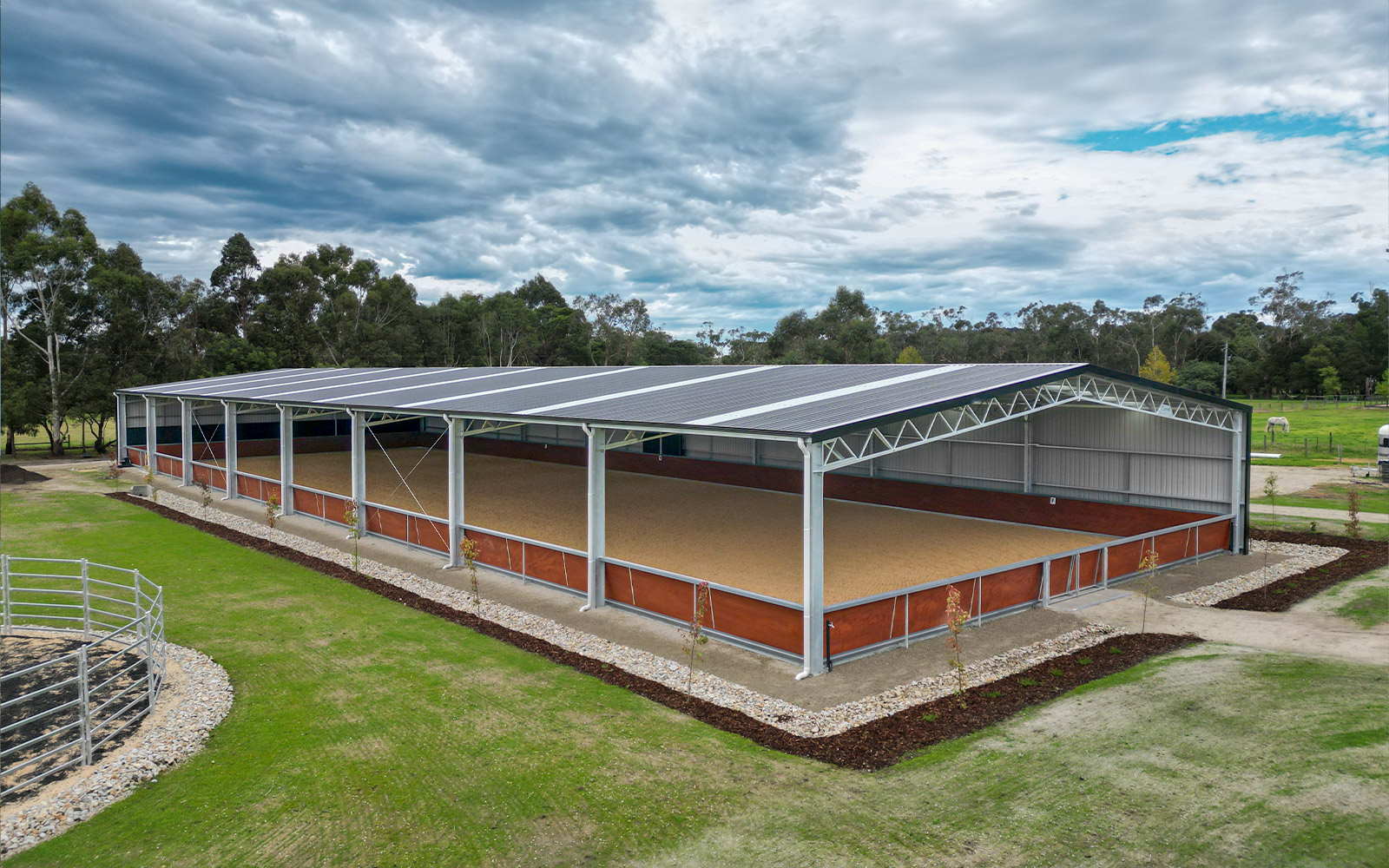
Building a riding arena is not as complicated as it might seem, but it does require proper planning and preparation. To help you get started, let’s cover what you need to know to build a riding arena, including location, ensuring proper drainage, selecting the right surface and fencing, and more. By the end, we hope you will understand what it takes to build an indoor riding arena and provide your horses with a safe, suitable environment for training and exercise.
The location of your riding arena is critical to its success. You will want to select a location that is relatively level, easily accessible, and free from obstacles like vegetation or other structures. Although your site can be cleared and leveled before construction, it is more cost-effective to find a location already free of hindrances.
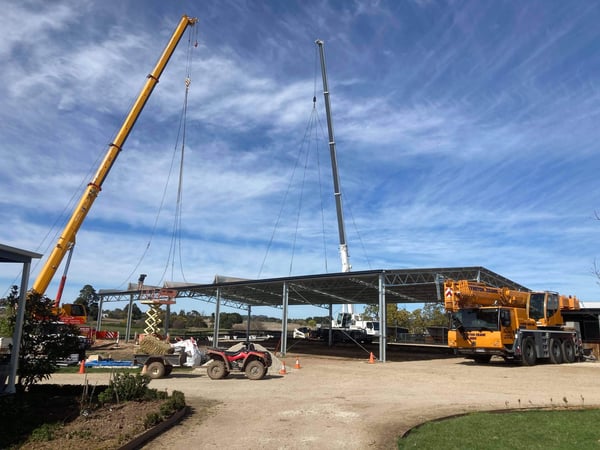
You will also need to factor soil into your location selection. Different types of soil provide varying levels of stability, drainage, and compaction which can significantly impact the safety and quality of the arena. Ideally, you want to choose a location with soil that allows for proper drainage, stability, and cushioning.
Once you have determined a location for the structure, it’s time to do your research on any building and planning permits that might be required. Each local and state government has its own requirements, and you want to ensure your structure is compliant from the outset. If you’re unsure where to start, consider reaching out to a private building surveyor.
There are several options to consider when designing the cover for your riding arena. The height of the cover will affect the amount of light and ventilation the arena receives. If you are building an indoor riding arena, additional features such as skylights and ventilation systems can be added to ensure the arena is comfortable and safe for both horse and rider.
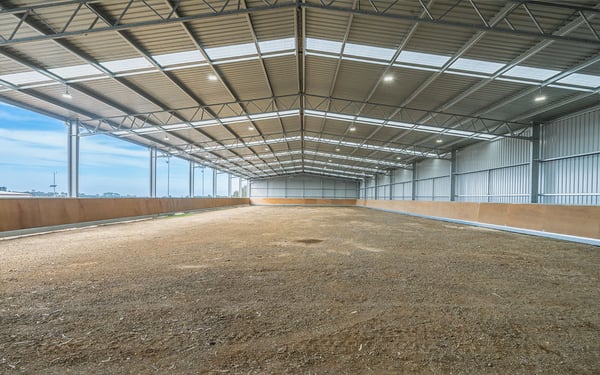
Ensuring proper drainage is also crucial for the safety and longevity of your riding arena. Your arena should be located at a high point in your property, not at the base of hills or in the path of runoff water. A carefully designed base and slightly sloping fall can also help to prevent pooling water, reducing the likelihood of muddy and unsafe footing for your equine companions. It’s important to consult with an experienced contractor to determine the best drainage solutions for your specific location and soil type.
Once your riding arena has been built, it can be difficult to know exactly how to lay your surface. Poor arena surfaces can cause problems with your horses’ performance. Therefore, it’s important that the surface is firm enough to offer support and strong enough to absorb shock. There is a range of options to choose from, including sand, rubber, and other synthetic surfaces, each with its own advantages and disadvantages. The surface you ultimately choose will depend largely on your budget and the intended use of your arena.
Fencing is necessary to ensure the safety of both the horse and the rider. Fencing should be sturdy and high enough to prevent horses from jumping out, while a retaining wall can help prevent erosion and provide additional support for the arena’s base. Adding kickboards to the structure, while at an additional cost, can also help to reinforce walls from damage and protect the horse from injury. Last, but not least, ensure you add a gate that allows for easy access to and from the arena.
Building a riding arena requires proper planning and preparation. By understanding important aspects such as site preparation, draining, fencing, and more, you can confidently create a safe and suitable structure for your equine companions to train and exercise for years to come.
The good news? If you’re looking to build a riding arena, the team at Central Steel Build can assist you through this entire process so you can breathe easy knowing you’ve got an expert in your corner, we’ve done this before. With over 40 years in the industry, we have built a reputation for designing and building high-quality, long-lasting structures. Let us help you create the ideal riding arena for you and your horse. Contact our equine specialists today.
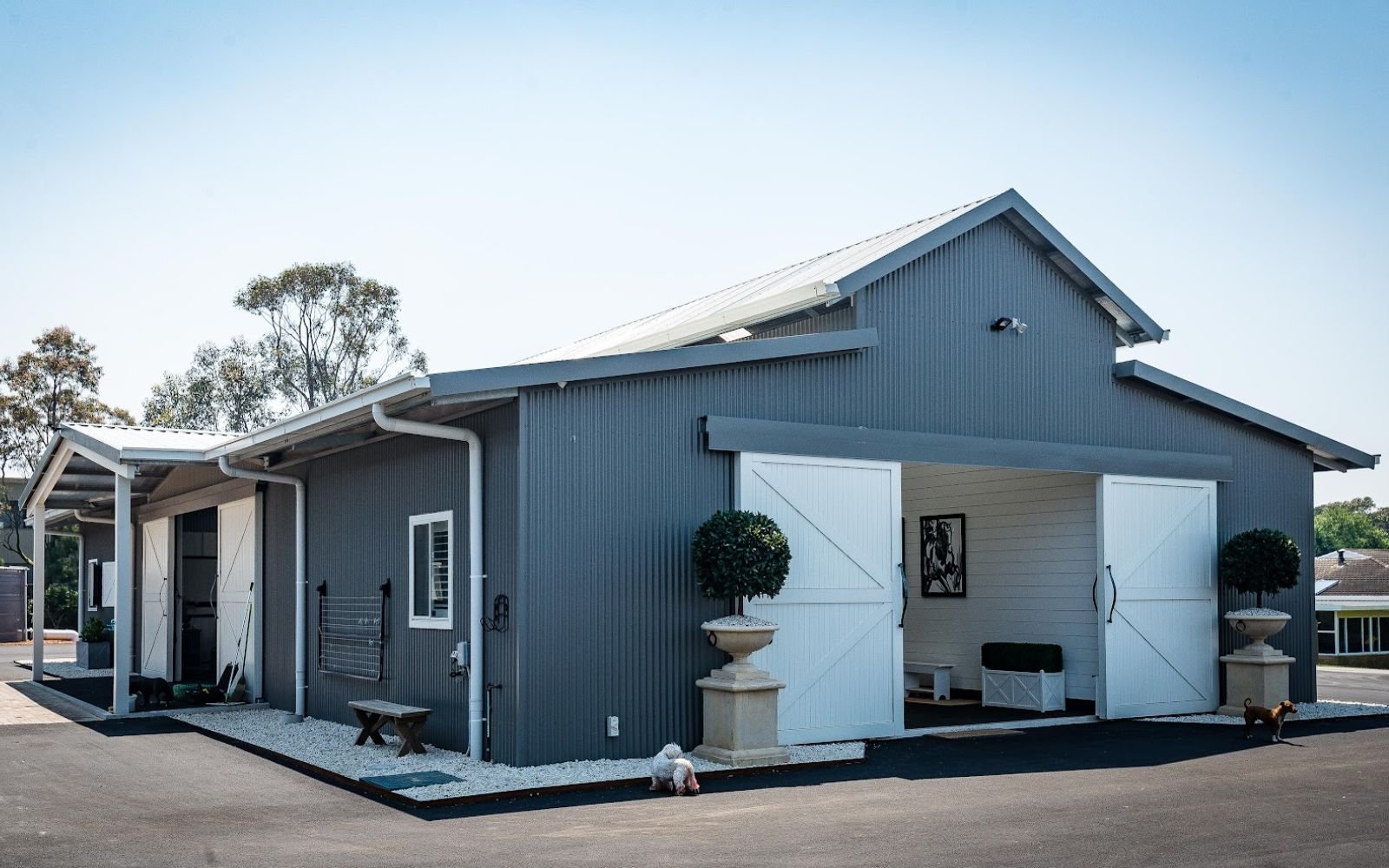
As a horse owner, your priority is to provide a secure and comfortable dwelling for your equine companions. Building horse stables is a great...
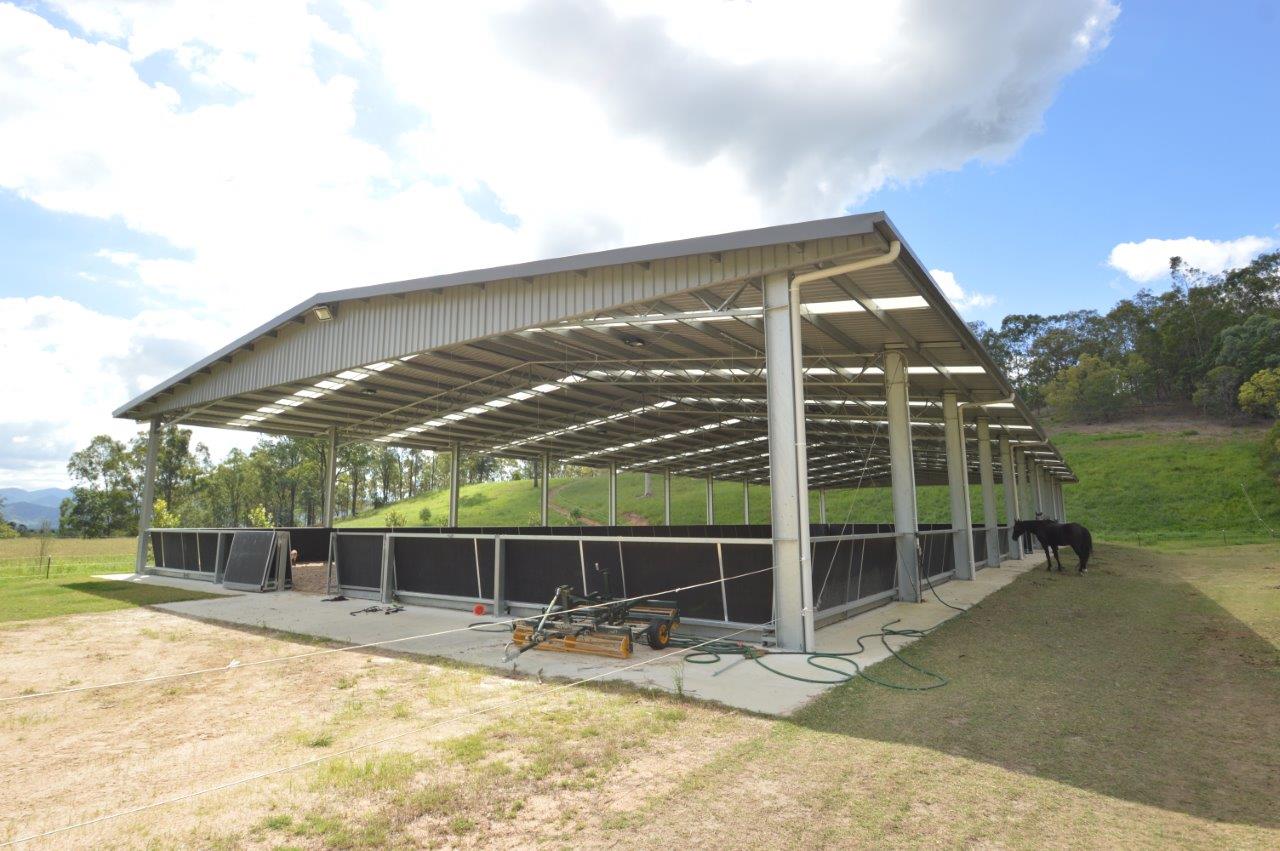
Things to remember when building an indoor arena Building an indoor horse arena is costly and making mistakes in the process can be painfully...
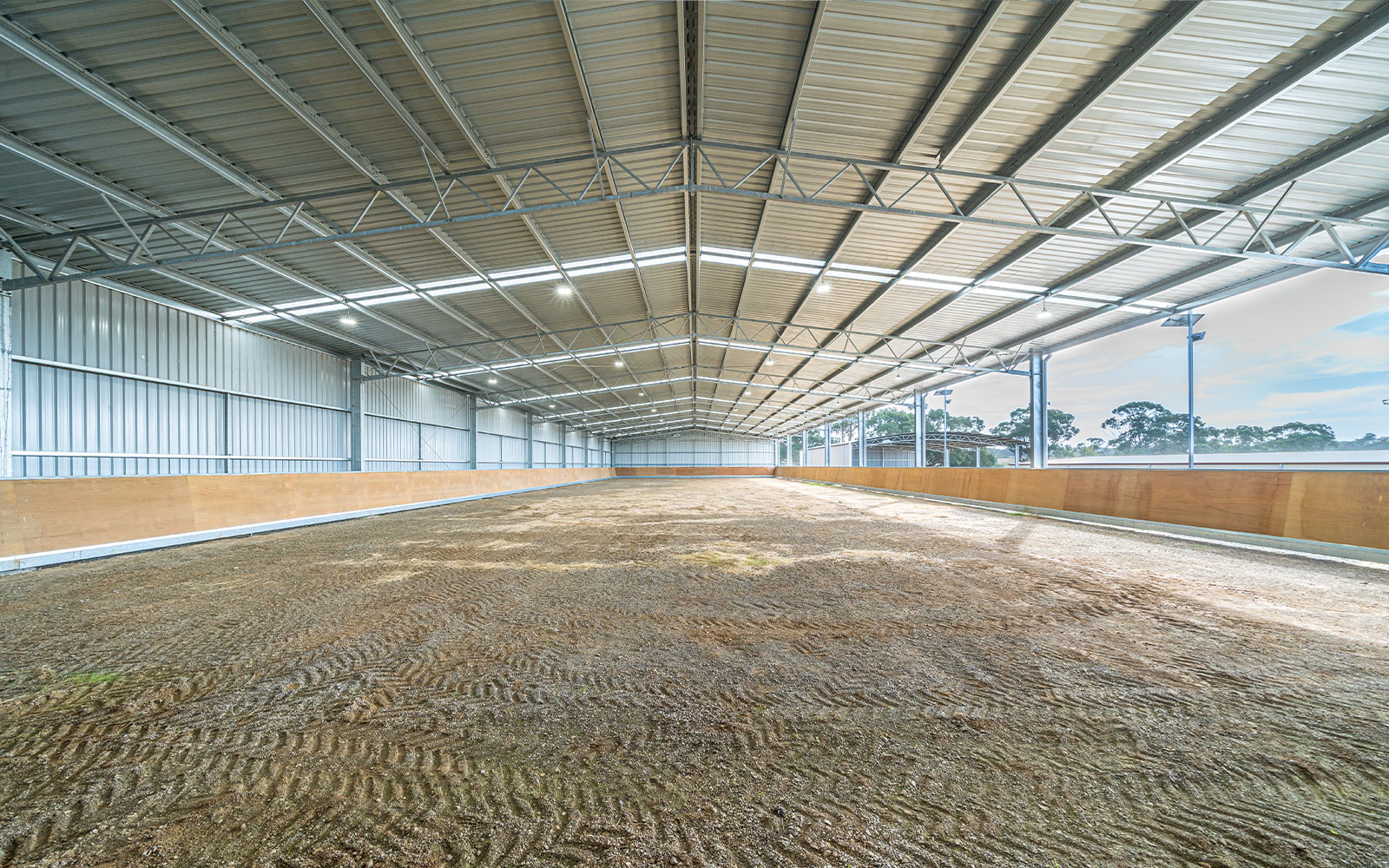
Benefits of having an indoor equestrian space For equestrian enthusiasts, trainers, and horse owners alike, indoor horse training areas, often known...